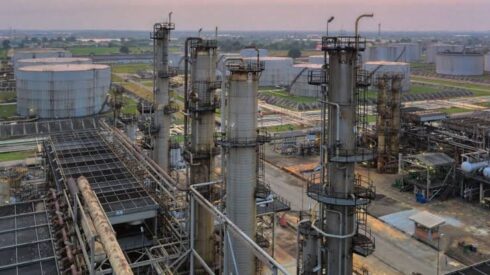Minister of Power, Adebayo Adelabu, made a critical call for the establishment of multiple power grids across the nation during the launch of Hexing Livoltek, an electricity meter manufacturing company in Lekki, Lagos . According to Adelabu, Nigeria’s existing power infrastructure is significantly outdated, leading to frequent grid collapses that disrupt the electricity supply. The minister noted that the current grid is ill-equipped to meet the increasing demands of the country’s growing population and economy, which has resulted in consistent failures that affect businesses, homes, and essential services.
Adebayo Adelabu emphasized the need for decentralizing the country’s power supply by establishing regional power grids. This decentralization, he explained, would reduce the risk of nationwide blackouts when one section of the grid experiences a failure. The new Electricity Act, which has been recently signed into law, empowers state and local governments to independently manage their electricity generation, transmission, and distribution systems. This shift toward regional control will not only reduce dependency on a single national grid but will also enhance the stability and efficiency of electricity supply across Nigeria.
Power Infrastructure and Grid Failures Are Almost Inevitable
Adebayo Adelabu candidly addressed the frequent grid failures that have plagued Nigeria’s electricity supply. According to him, grid collapses—whether partial, total, or momentary disruptions—are “almost inevitable” due to the dilapidated state of the power infrastructure. The minister pointed out that the nation’s grid system, reliant on outdated transformers and equipment, cannot consistently perform at optimal levels.
Minister Adebayo Adelabu also cited aging transformers, some over 60 years old, as a key reason for the recurring failures. He warned that without significant investment in upgrading these systems, grid collapses will persist, adding that the focus should now be on minimizing the impact and improving response times to outages.
Minister Adebayo Adelabu: Decentralization of Power, A New Path Forward
One of the key outcomes of the newly enacted Electricity Act is the decentralization of power generation and distribution. Adebayo Adelabu noted that previously, all states relied on a single national grid, making the entire country vulnerable to grid collapses. However, under the new law, state and local governments can now establish their own power grids, reducing the risk of nationwide blackouts.
This shift, according to Adebayo Adelabu, is crucial for improving the reliability of electricity across Nigeria. He added that decentralization would also encourage states to invest in upgrading their power infrastructure, thereby reducing their dependence on the national grid and leading to a more resilient and stable energy sector.
Regional Grids to Improve Stability and Efficiency – Minister Adebayo Adelabu
Adebayo Adelabu highlighted the advantages of establishing regional power grids, which would operate independently of one another. He explained that this separation of grids would contain power failures to specific regions, rather than causing a nationwide outage, as is currently the case when the national grid collapses.
By promoting the development of regional grids, Nigeria can achieve a more stable and efficient electricity supply, even in the face of infrastructure challenges. This strategy also aligns with the government’s broader vision of energy reform and modernization, aimed at fostering economic growth and reducing dependency on a central grid system.
Investing in Infrastructure: The Key to a Stable Grid
Adebayo Adelabu did not mince words when he addressed the state of Nigeria’s power infrastructure, describing it as “deplorable.” He reiterated that the current grid system, with its reliance on outdated equipment, cannot provide the level of service the country requires. The minister called for substantial investment in modernizing Nigeria’s power infrastructure to prevent grid collapses and ensure long-term stability.
He pointed out that while the country had avoided major grid collapses in recent months, the system remains fragile. To remedy this, Adebayo Adelabu stressed that the government must prioritize investments in upgrading transformers and other critical components to meet the growing demand for electricity.
Improving Response Time to Grid Failures
While significant infrastructure improvements are necessary, Adebayo Adelabu acknowledged that the government’s immediate focus is on reducing the impact of grid failures. He mentioned that recent collapses, though fewer, have been resolved quickly, with outages lasting less than two hours. This improvement in response time is part of a broader effort to manage the current grid while awaiting major upgrades.
The minister also emphasized that maintaining the status quo is not a viable long-term solution. However, until the necessary investments are made, the government will continue to focus on managing grid disruptions effectively and minimizing their effects on daily life and business operations across the country.
Table of Contents
Discover more from OGM News NG
Subscribe to get the latest posts sent to your email.













